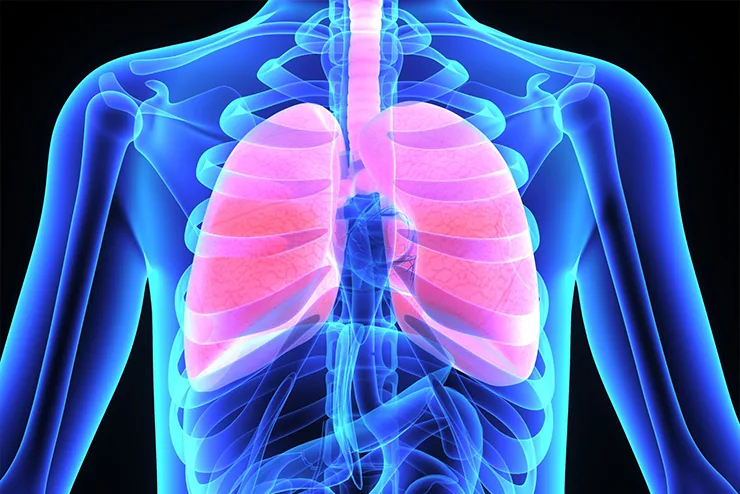
Lung cancer is one of the most common types of cancer affecting millions of people a year.
One of the most significant developments in cancer research is the identification of genetic mutations that drive the development of lung cancer. Researchers have found that certain mutations in genes such as EGFR, ALK, ROS1, and BRAF are present in a significant percentage of lung cancer patients. These mutations can be targeted with specific drugs that can slow down or stop the growth of cancer cells. This personalized approach to treatment has shown to be highly effective and is changing the way disease is treated
In terms of diagnosis, advances in imaging technology have improved the accuracy of lung cancer detection. Low-dose computed tomography (CT) scans have been shown to be highly effective in detecting early-stage lung cancer in individuals who are at high risk for the disease.
The U.S. Preventive Service Task Force recommends a low-dose CT scan for screening only for individuals at high risk: people who have a 20 pack year or more of smoking and smoke now or have quit in the past 15 years and are between 50-80 years old.
Whole-body MRI scans such as Prenuvo are not recommended as a replacement for low-dose CT scanning screening at this time. If you are interested in a Prenuvo study, talking to your doctor about the benefits and risks is advisable.
Read Also: What Are Common Misconceptions About MRI Technology?
Lastly, with treatment, there are several options available for individuals with cancer, depending on the stage and type of cancer. Surgery, radiation therapy, chemotherapy, and targeted therapy are all options that may be used alone or in combination with each other. The choice of treatment will depend on factors such as the size and location of the tumor, as well as the individual’s overall health.
In summary, lung cancer research is rapidly advancing, with significant progress being made in the areas of genetic testing, immunotherapy, and imaging technology. These advancements are providing new hope for individuals with lung cancer.
Take preventive measures against lung cancer. Call The Village Doctor at (650) 851-4747 or Contact us to learn more about the practice.
Prerana Sangani, MD, April 6, 2023.


